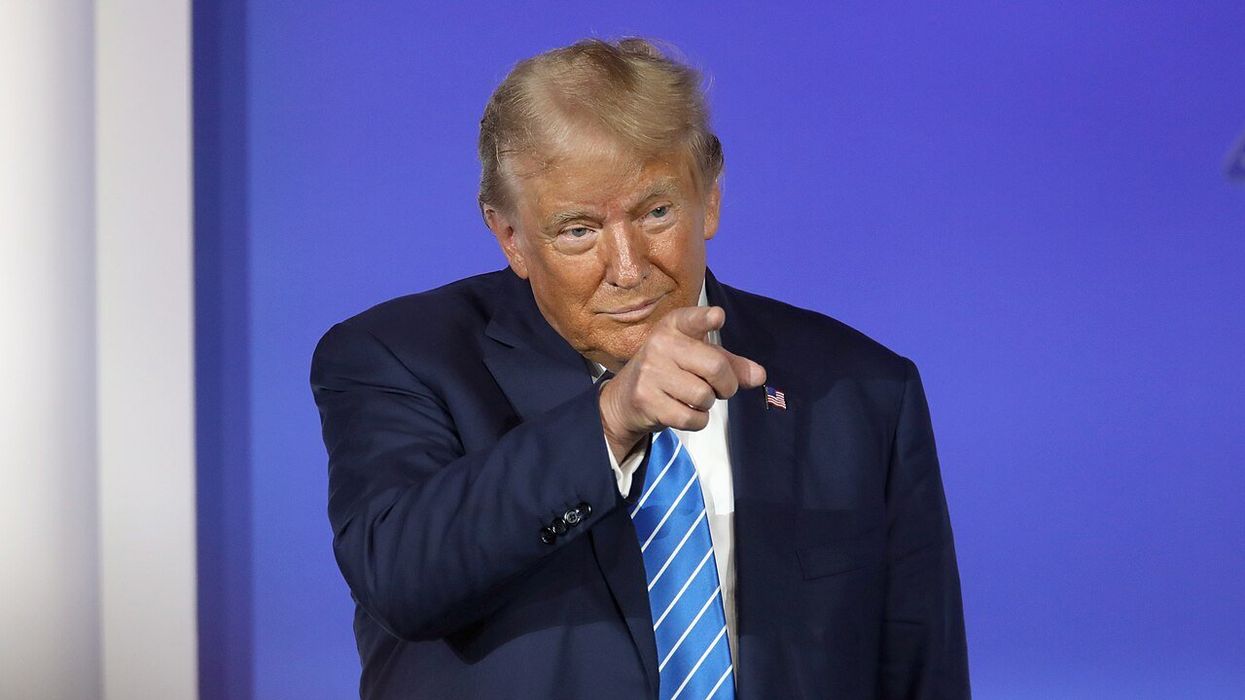'Life or death for American democracy': Ex-federal prosecutor grapples with 3 'key legal issues' of 2024

Former President Donald Trump in Las Vegas in October 2023 (Gage Skidmore)
January 02, 2024 | 07:31AM ETBank
Many pundits are predicting that the 2024 presidential election will be unlike any other in United States history. And, to be sure, the U.S. has never before had a twice-impeached presidential candidate who, according to polls, has a good chance of returning to the White House despite the fact that he is facing four criminal indictments.
In a listicle published by the conservative website The Bulwark on January 2, law professor and former federal prosecutor Kimberly Wehle describes "three of the key legal issues to watch in 2024."
Wehle notes that GOP presidential frontrunner Donald Trump recently told conservative radio host Hugh Hewitt, "I'm going to rule as somebody that's very popular with the people" — a comment that, Wehle says, speaks volumes about his mentality.
POLL: Should Trump be allowed to hold office again?
The U.S., Wehle writes, doesn't have "rulers" — not yet, anyway.
"Welcome to 2024, a year that means life or death for American democracy," Wehle warns. "The legal questions that will be in the news this year are legion and epic. It is difficult even for lawyers to keep things straight, partly because Donald J. Trump has pushed the boundaries of the Constitution and the rule of law beyond where any president or former president has ever dared…. But all hope is not lost. Between special counsel Jack Smith and the U.S. Supreme Court justices, there remain a handful of lawyers and judges whose decisions could directly affect the presidential election."
The "key legal issues" that Wehle tackles are: (1) the "timing of" Trump's "criminal trials," (2) "absolute immunity for presidential crimes," and (3) the "ban on insurrectionists becoming president."
"The U.S. Supreme Court has been asked by Trump to dismiss the January 6th case — and in effect, all cases against him relating to conduct while he was president — on the theory, boiled down, that Article II of the Constitution allows presidents to commit crimes with impunity just because they are president," Wehle explains. "Trump is framing the issue as one of presidential immunity, which has some scant precedent, but by no legitimate theory expands to insulation from legal accountability for crimes in office."
READ MORE: Here's everything you need to know about how the Constitution’s insurrection clause affects Trump
Two states, Colorado and Maine, have banned Trump from their primary ballots, noting the 14th Amendment's insurrection clause. But other states, including California and Michigan, have decided that Trump can remain on their ballots.
"If the U.S. Supreme Court takes up this issue," Wehle writes, "it's impossible to predict how it will come out."
Kimberly Wehle's full article for The Bulwark is available at this link.